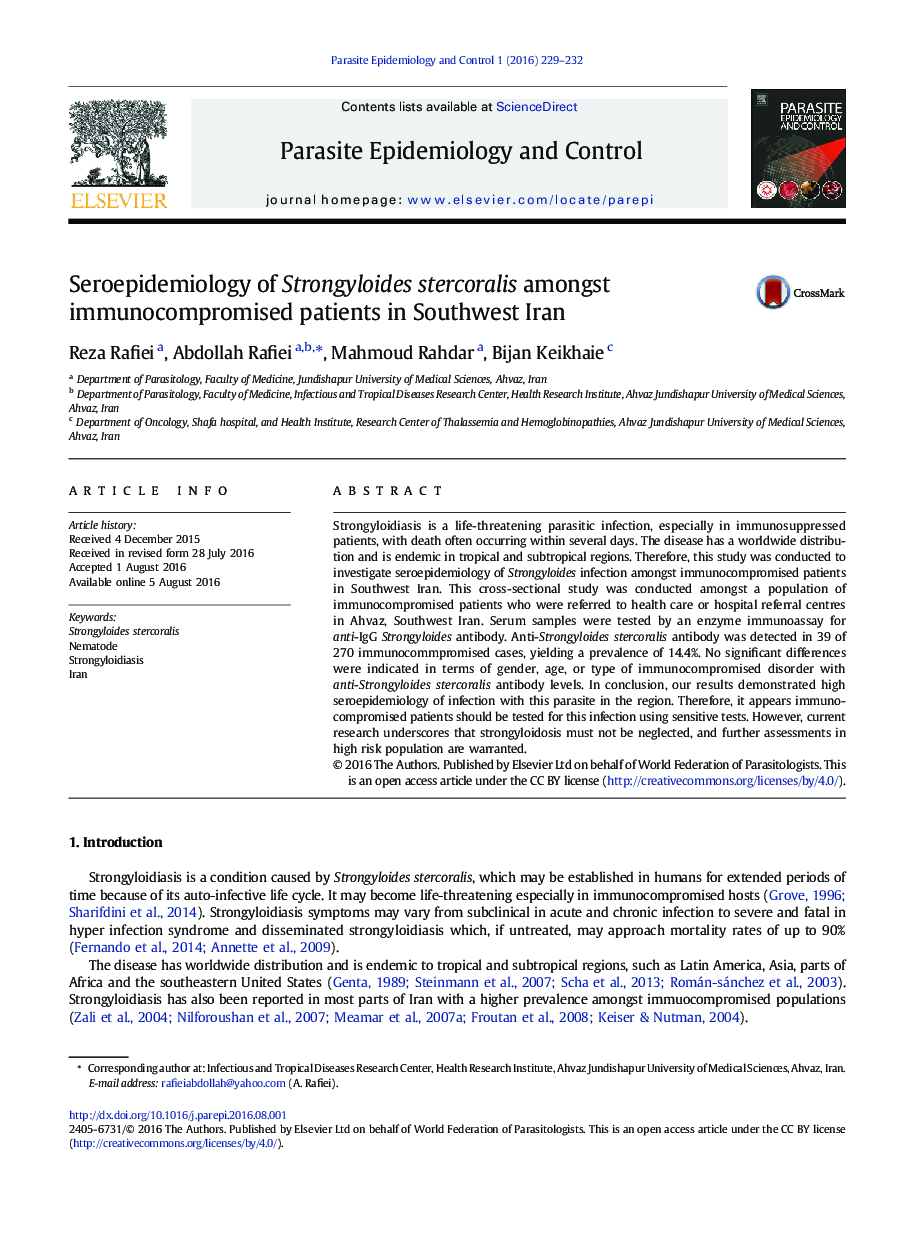| Article ID | Journal | Published Year | Pages | File Type |
|---|---|---|---|---|
| 2473649 | Parasite Epidemiology and Control | 2016 | 4 Pages |
Strongyloidiasis is a life-threatening parasitic infection, especially in immunosuppressed patients, with death often occurring within several days. The disease has a worldwide distribution and is endemic in tropical and subtropical regions. Therefore, this study was conducted to investigate seroepidemiology of Strongyloides infection amongst immunocompromised patients in Southwest Iran. This cross-sectional study was conducted amongst a population of immunocompromised patients who were referred to health care or hospital referral centres in Ahvaz, Southwest Iran. Serum samples were tested by an enzyme immunoassay for anti-IgG Strongyloides antibody. Anti-Strongyloides stercoralis antibody was detected in 39 of 270 immunocommpromised cases, yielding a prevalence of 14.4%. No significant differences were indicated in terms of gender, age, or type of immunocompromised disorder with anti-Strongyloides stercoralis antibody levels. In conclusion, our results demonstrated high seroepidemiology of infection with this parasite in the region. Therefore, it appears immunocompromised patients should be tested for this infection using sensitive tests. However, current research underscores that strongyloidosis must not be neglected, and further assessments in high risk population are warranted.
